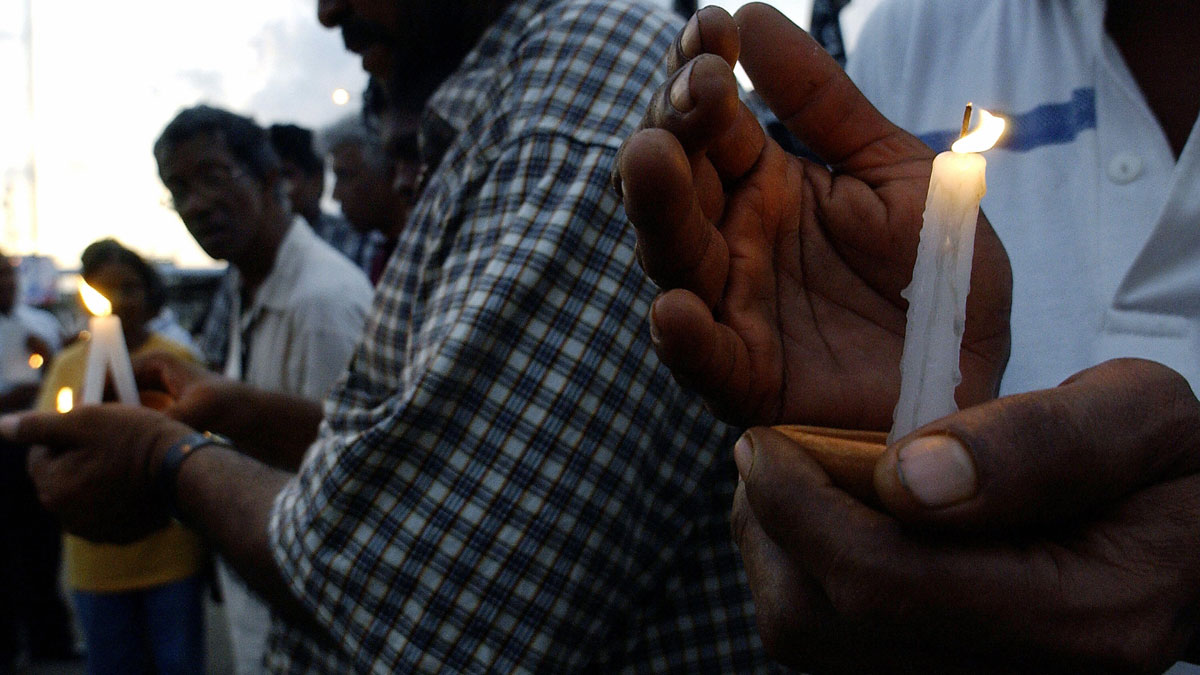Black July anniversary: the legacy of the Tamil massacre in Sri Lanka
The killings catapulted the country in civil war, but the government has yet to face up to its violent past

A free daily email with the biggest news stories of the day – and the best features from TheWeek.com
You are now subscribed
Your newsletter sign-up was successful
Today marks the anniversary of the beginning Black July, a massacre that served as the catalyst for the most violent period in Sri Lanka's history.
Thousands of Tamils were killed by members of the Sinhalese majority in 1983, propelling the country into a civil war which lasted 26 years and left more than 100,000 people dead.
The government categorised the violence as race riots that erupted in response to the murder of Sinhala soldiers, but evidence suggests the massacre was pre-planned and state-sanctioned.
The Week
Escape your echo chamber. Get the facts behind the news, plus analysis from multiple perspectives.

Sign up for The Week's Free Newsletters
From our morning news briefing to a weekly Good News Newsletter, get the best of The Week delivered directly to your inbox.
From our morning news briefing to a weekly Good News Newsletter, get the best of The Week delivered directly to your inbox.
The pogrom was "more horrific and unrestrained in its violence than the Nazis' Kristallnacht," says Janani Jananayagam, a British Tamil activist and politician.
What happened?
On July 23, Tamil Tigers fighting for an independent state ambushed a military patrol in northern Sri Lanka, killing 13 Sinhalese soldiers. The attack sparked riots across the country, with Sinhalese mobs targeting the Tamil community with support from the police, army and the government. Up to 4,000 Tamils were killed in the violence. Entire villages were razed to the ground, women were raped and men were burned alive. "In Colombo and provincial towns, soldiers stood by and even supplied petrol," says the BBC's Charles Haviland. The violence finally died down after July 31, but only after tens of thousands of Tamils were forced to flee to the north of the country or abroad.
Who was responsible?
A free daily email with the biggest news stories of the day – and the best features from TheWeek.com
Human rights groups and international observers report that the massacre was not simply spontaneous mob retaliation for the attack on the soldiers – a myth perpetuated by the authorities. Instead, President JR Jayawardene's regime used the Tamil attack as an excuse to begin Sri Lanka's most violent pogrom.
"Even before the first Tamil was murdered – just as in Kristallnacht and the Rwandan genocide – the event had been planned, the weapons gathered, lists of target homes and business drawn up, and the killers recruited. Only the signal was required," says Jananayagam.
Paul Sieghart, the Chairman of the British Section of the International Commission of Jurists, came to a similar conclusion after a fact-finding mission to the country in 1984. "Clearly this was no spontaneous upsurge of communal hatred among the Sinhala people," he said. "It was a series of deliberate acts, executed in accordance with a concerted plan, conceived and organised well in advance".
The legacy of Black July
More than three decades later, no one has been prosecuted for the atrocities committed. With parliamentary elections looming in Sri Lanka, political parties are being urged to focus on post-war accountability and reconciliation. "We believe that the truth of what happened during the three decades of the war must be known to the people, and accountability sought, with reconciliation rather than punishment as the primary goal," says the Sri Lankan Guardian.
Jananayagam has long campaigned for the government to be held accountable for the massacre. "Until justice – the bedrock for any lasting peace – emerges, until Tamils are recognised as a people with equal rights and a rightful place in their homeland, Sri Lanka will remain synonymous with ethnic strife," she said during an anniversary vigil in London in 2011.